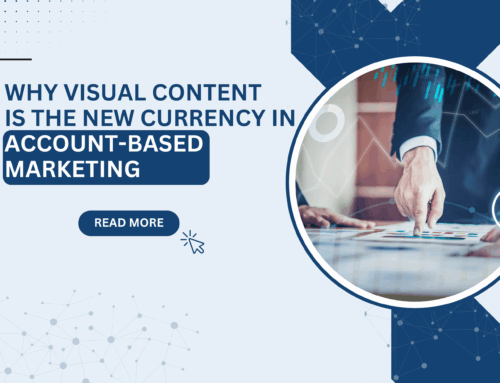Artificial intelligence (AI) is rapidly transforming the landscape of B2B marketing, fundamentally reshaping traditional demand-generation strategies. Today’s complex buyer journeys span numerous channels and touchpoints, challenging conventional marketing methods to deliver precise targeting and meaningful engagement.
This blog explores how forward-thinking executives leverage AI to refine lead scoring, predictive analytics, and campaign optimisation, driving superior business outcomes and competitive advantage.

The Evolution of Lead Scoring with AI
Traditional manual lead scoring often struggles with subjectivity, inefficiency, and limited scalability. Marketers historically relied on intuitive judgments to prioritise leads, creating inconsistencies and frequent misalignment with actual buyer intent.
AI-driven lead scoring addresses these limitations by automating data analysis, enabling accurate and scalable lead prioritisation. Predictive AI lead scoring automatically recalibrate scores based on critical engagement metrics—email interactions, frequency of visits to pricing pages, and content downloads—providing real-time, actionable insights.
The HubSpot 2025 State of Marketing Report highlights that 30% of marketers currently utilise AI specifically for data-driven insights and analysis.
Furthermore, a separate HubSpot report revealed that nearly 70% of marketing leaders investing in AI reported positive returns on investment, primarily driven by enhanced productivity and marketing effectiveness.
By adopting AI-driven scoring, companies significantly improve conversion rates and efficiently allocate sales resources, ultimately boosting revenue growth and profitability.
Optimising Campaigns Through AI
Managing multi-channel marketing campaigns in a dynamic, ever-changing marketplace poses significant challenges. Ensuring real-time responsiveness, message consistency, and effective resource allocation across various platforms demands substantial effort and strategic clarity.
AI provides sophisticated solutions by enabling real-time campaign optimisation. It continuously analyses campaign performance data, proactively recommending strategic adjustments to maximise effectiveness and efficiency. By automatically identifying optimal messaging, timing, and channel mix, AI ensures campaigns remain agile, responsive, and highly targeted.
Forrester’s analysis underscores AI’s value in real-time performance monitoring and actionable campaign analytics, emphasising that AI-driven insights significantly enhance marketing efficiency and adaptability. Executives adopting AI in their campaign strategies experience notable improvements, including increased responsiveness, better resource utilisation, and demonstrable increases in campaign ROI.

Harnessing Predictive Analytics for Strategic Insights
Predictive analytics involves analysing historical data and real-time signals to forecast customer behaviours, enabling proactive and strategic marketing initiatives. By accurately identifying intent signals early in the buyer journey, predictive analytics allows marketing teams to uncover high-quality leads faster, dramatically improving demand-generation outcomes.
AI integration elevates predictive analytics by rapidly processing extensive and complex datasets. AI algorithms detect patterns, interpret buyer signals, and predict future behaviour with remarkable precision, capabilities far beyond traditional analytical tools.
According to Forrester, predictive analytics has emerged as a critical enabler of business optimisation and strategic risk management. Organisations adopting AI-driven predictive analytics consistently report tangible benefits, including significantly reduced acquisition costs, accelerated pipeline growth, and enhanced campaign efficiency.
These insights empower marketers to proactively allocate resources towards the most promising opportunities, resulting in greater marketing ROI.
Embracing the Future: AI’s Expanding Role in Demand Generation
Looking ahead, AI’s influence on B2B marketing continues to expand, particularly through emerging applications of generative AI in content creation and personalised customer engagement. AI-driven technologies now produce sophisticated, tailored marketing content at unprecedented speed and scale, radically enhancing personalisation and engagement effectiveness.
Reflecting this trend, Gartner highlights that in 2025, AI is now integral to marketing operations, dramatically enhancing personalisation capabilities and overall efficiency.
As buyers increasingly expect hyper-personalised experiences, businesses that fail to adopt AI-powered personalisation will inevitably lag behind competitors.
To stay competitive and effectively meet evolving customer expectations, forward-thinking executives must invest proactively in AI technologies. This strategic adoption ensures continued relevance, customer satisfaction, and market-leading demand-generation outcomes.
The Acumen Intelligence Advantage
Acumen Intelligence strategically integrates AI-driven lead scoring and predictive analytics into its demand-generation platform. By leveraging sophisticated algorithms and real-time analytics, Acumen enables businesses to precisely forecast buyer intent, streamline campaign management, and maximise marketing efficiency, ensuring substantial ROI and sustained competitive advantage.

Conclusion
Artificial intelligence is transforming B2B demand generation by revolutionising lead scoring, enhancing predictive analytics, and optimising multi-channel campaigns. Embracing AI enables businesses to precisely prioritise leads, proactively predict buyer behaviour, and deliver highly effective campaigns tailored to real-time market dynamics.
Executives who integrate AI into their strategic marketing operations will not only enhance their competitive positioning but also experience measurable gains, including increased conversion rates, reduced acquisition costs, and significantly accelerated pipeline growth.
In the age of AI, the best marketers won’t just use data—they’ll let data lead.

